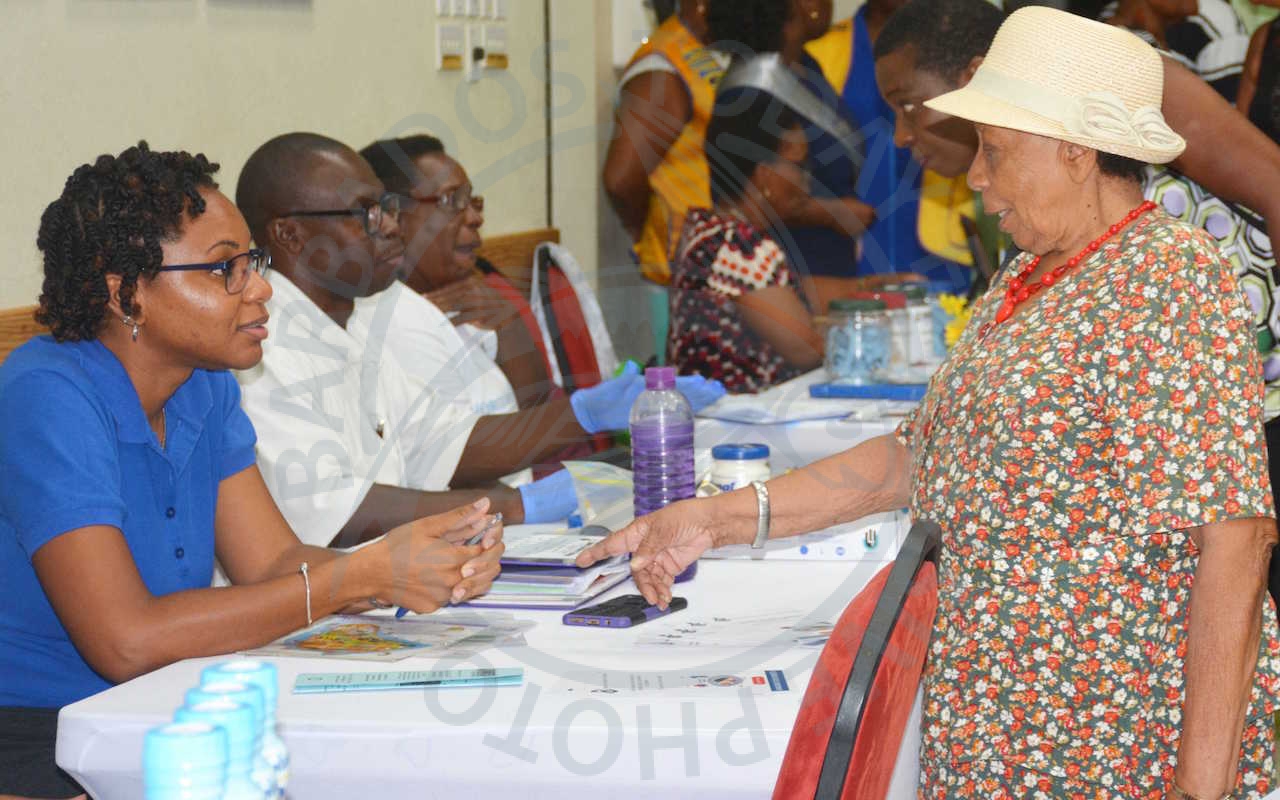Based on frequent public statements about diabetes being the leader of non-communicable diseases gripping a large proportion of the Barbados population, a safe assumption could be that most Barbadians are aware of this ailment.
Most Barbadians may know that 20 per cent of adults over 25 have the disease and studies of those over 65 years show that the affliction rate is 46 per cent. But this is common knowledge of the plight of this island’s adult population that has contracted mostly Type II diabetes, owing mainly to poor lifestyle choices. What is missing in the spectrum of public knowledge is the suffering of those touched by childhood diabetes, mainly Type 1, that grips some of the nation’s young through no fault of their own as they were simply born with it.
With Thursday being World Diabetes Day, Barbados TODAY looks at challenges of children from tiny tots to adolescents and struggles of family members.
“When most people think of diabetes, they don’t think of the two-year-old child or the nine-month-old child. They think of the grandfather or grandmother or the aunty who got ‘a little bit of sugar’,” said general paediatrician and specialist in diabetes and obesity among children, Dr Tanya Gibson.
“In children, there is nothing about a little bit of sugar, there is diabetes,” she added during a presentation last week at the Diabetes Association of Barbados’s John Grace Memorial Lecture and panel discussion at Barbados Workers Union, Solidarity House.
The International Diabetes Federation states, “Type 1 diabetes is caused by an autoimmune reaction where the body’s defence system attacks the cells that produce insulin. As a result, the body produces very little or no insulin.”
According to IDF, “Type 1 diabetes can affect people at any age, but usually develops in children or young adults. People with Type 1 diabetes need daily injections of insulin to control their blood glucose levels. If people with Type 1 diabetes do not have access to insulin, they will die.”
Dr Gibson, who has worked in private practice with diabetic children and their families for the past ten years, spoke of the trauma parents and other family members go through when a child is diagnosed with Type 1 diabetes. She said their most common reaction is to ask what they did wrong.
But she explained that parents are not at fault. “Type 1 diabetes is a multi-factorial disease part of the genetics, part of the environmental factors, and part of viral factors,” she explained.
The other stress-related question is whether it can be cured. But she said that to date, “There is no cure for Type 1 diabetes but with effective management, we can prevent both the acute and the chronic complications.” It means that for those loving relatives, “This is just the beginning of a discussion that will continue for the rest of their lives with these families and there will be lots more questions that would arise.”
Dr Gibson said, “Diabetes in infants, toddlers, older children and adolescents poses serious physical, mental and emotional challenges. And this not only to the affected individual because diabetes becomes part of the family. It’s an unwelcome member of the family.”
The demanding and uncompromising task for that family is maintaining glycaemic control and preventing attacks of hypoglycaemia, low blood sugar, or hyperglycaemia. Dr Gibson shared the frustration of family members when the child suffers a relapse. ‘I couldn’t sleep for the whole week on the ward,’ is how she relayed expressions of loved ones who accompany children to the hospital. Children throw tantrums, and the physician mused, “[Imagine] you dealing with a three-year-old throwing tantrums and you’re trying to give him insulin”.
Healthcare professionals also feel tested in advising the family. “It’s good to tell a parent that you need to give four or three daily injections, but for you [family member] to hold a nine-month-old child and give him four injections…”
While medication for adult Type II sufferers could be simply tablets, “for a child with diabetes this medicine is insulin. So that is what the parents are faced with at the beginning”. This means wrestling with the infant daily to administer injections.
She used two questions to further emphasise difficulties in raising a diabetic child.
“If we have an infant or toddler with diabetes and the mother is in full time employment, what does she do with the child?”
“If a four-year-old child diagnosed with diabetes is at school there is no way that this child will be able to give himself the injections or to test their blood sugars at school. What do they do? Does the parent go to school each lunchtime?”
After enduring the tribulations of raising that child to adolescence, parents then have to worry about potentially injurious activities of the rebellious teenager, trying out things for the first time. Teenagers sometimes experiment with alcohol.
“For a young person with diabetes to start drinking can mean that you are in a coma the next night or the same night because the blood sugar may drop,” Dr Gibson said.
As Barbadians go about their lives on World Diabetes Day on Thursday, spare a thought for the struggling youngsters; also, their families who walk a daily tightrope of disciplined insulin administration.




